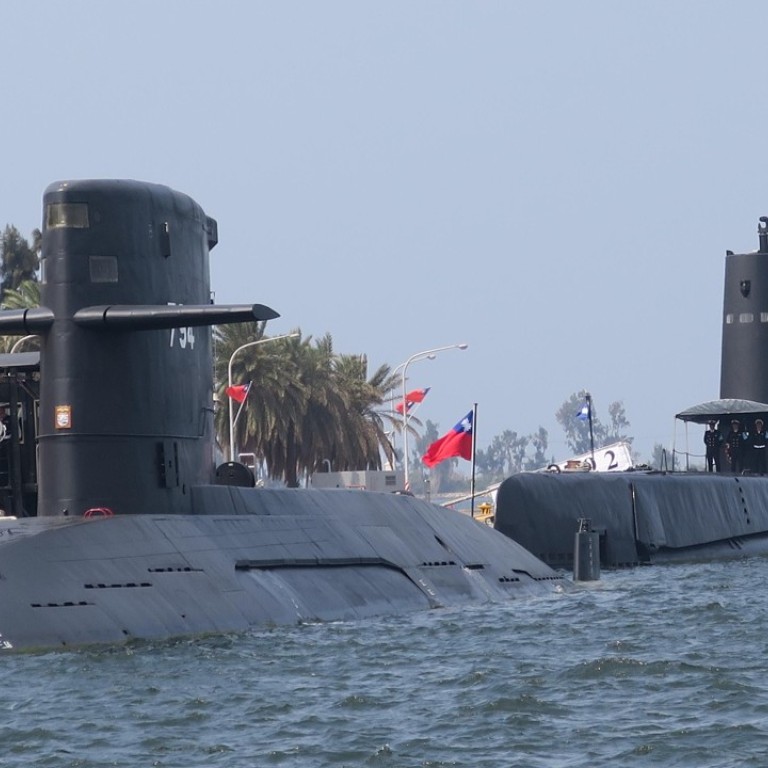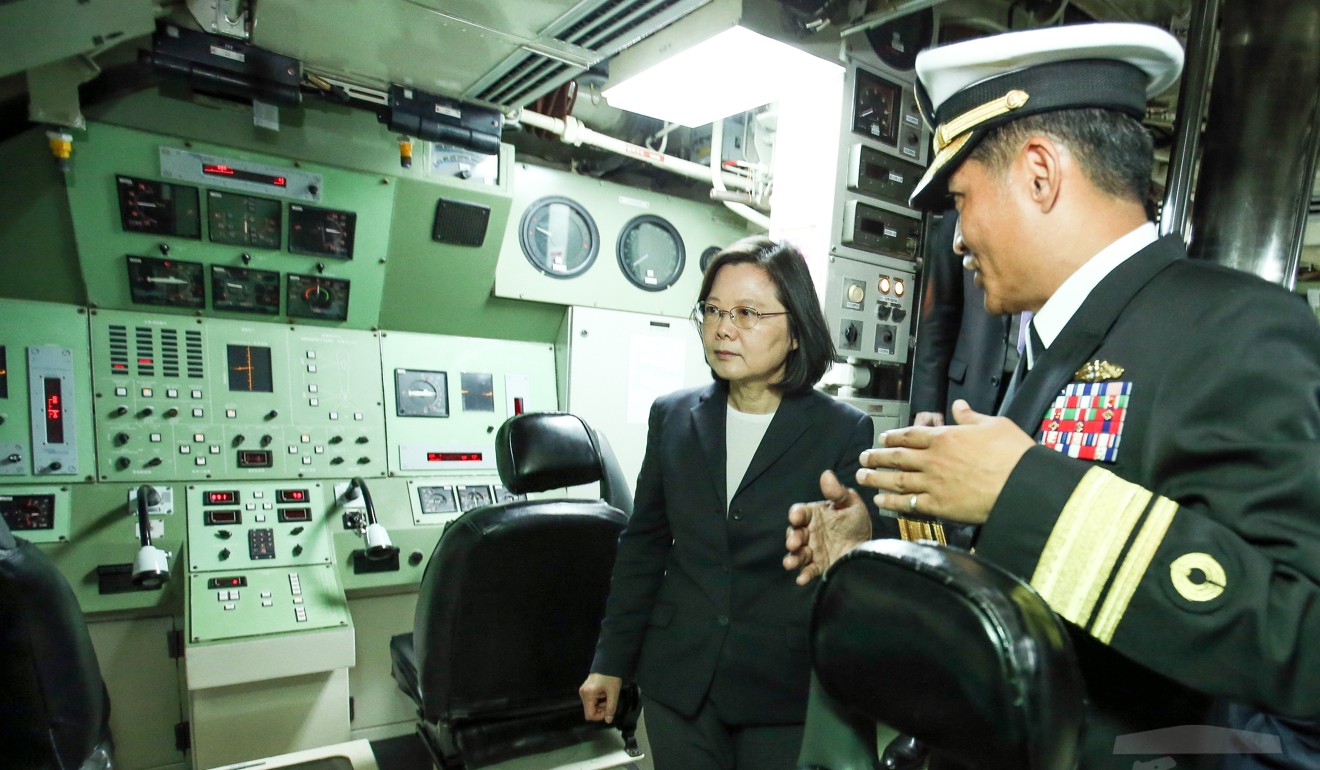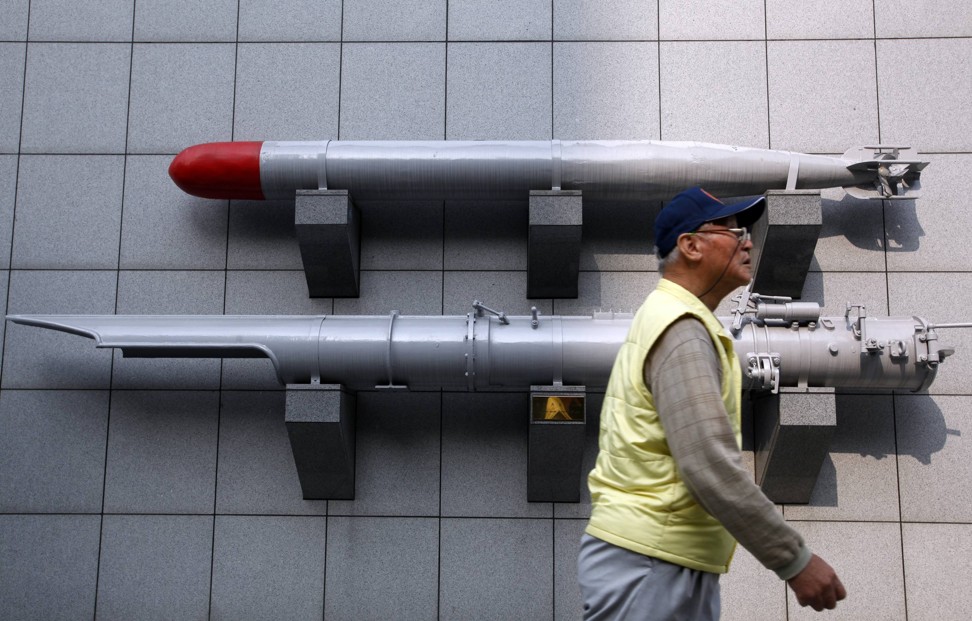
US approved sale of submarine parts to Taiwan to make money, not arm island, analysts say
Even with green light from Washington, Taipei still has a long way to go before it will be able to develop new fleet, according to observers
Washington’s approval of US defence contractors supplying Taiwan with the technology and parts it needs to build submarines should be seen as a straightforward trade deal rather than military support, analysts said.
“Trump’s Asian-Pacific policy is to encourage its Asian allies to increase their defence capabilities and buy arms from the US,” said Wang Kung-yi, a professor of political science at Chinese Culture University in Taipei.
Trump’s Asian-Pacific policy is to encourage its Asian allies to increase their defence capabilities and buy arms from the US
“As long as it allows the US to earn more money, granting the marketing licence is the right move,” he said.
Without the cutting-edge technologies, sophisticated firearms systems, and expertise in testing and integrating hardware and weapons systems, Taiwan’s hopes of building eight submarines would be at risk, the analysts said.
However, Wang was keen to point out the difference between approving a marketing licence and actually selling arms to Taiwan.
“The former means you [Taipei] have to deal with the contractors and take your own risks in buying the stuff,” he said. “The latter would mean the US giving at least some kind of guarantee that the equipment works.”
For instance, when Taiwan was building its own fighter jets many years ago, the US provided not only the necessary technologies, but also hundreds of technicians to help assemble and test the planes before they could be rolled out for mass production, Wang said.
Arthur Ding, director of the Institute of International Relations at National Chengchi University in Taiwan, said it remained to be seen, however, if Washington would actually hand over its cutting-edge technologies and sophisticated firearm systems to Taipei, as some of them were never intended to be exported.
“In the past, US technology transfers to Taiwan have been limited to items of a defensive nature, not sophisticated, state-of-the-art ones,” he said, adding that Taiwan would also need experienced, highly skilled technicians to put the submarines and weapon systems together.

So the granting of a marketing licence was far from evidence that Taiwan would soon be developing a fleet of submarines, he said.
Tsai last year announced plans to build eight submarines to replace the four outdated vessels Taiwan currently operates, of which only two are seaworthy.
In 2001, then US President George W Bush approved the sale of eight conventional submarines to the island, but delivery was never made, partly as the US no longer builds such vessels. Germany and Spain reportedly declined to sell their designs to Taiwan out of fear of provoking Beijing, which considers Taiwan a wayward province subject to eventual union, by force if necessary, and has warned other countries against selling it arms.
Tension between mainland China and Taiwan has escalated since Tsai and her independence-leaning Democratic Progressive Party came to power in 2016 and refused to accept the one-China principle. Beijing has since increased its military exercises in and around the island.


